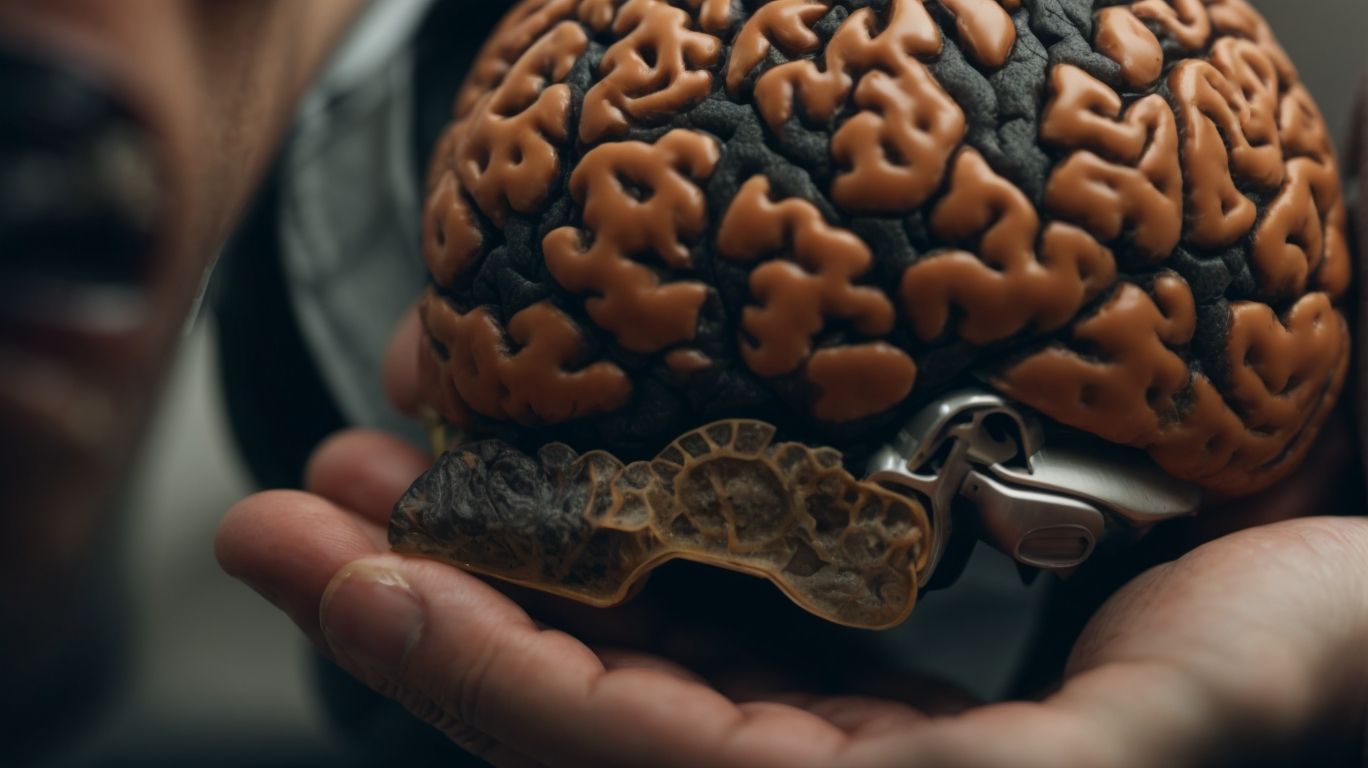Intentionality is a fundamental concept in psychology that delves into the understanding of human behavior, motivations, and consciousness. In this article, we explore the different types of intentionality, including physical, psychological, and collective intentionality, and examine its significance in psychology.
We also discuss how intentionality relates to consciousness, the criticisms it faces, and how it is studied in the field of psychology. Join us as we uncover the complexities of intentionality and its implications in the study of the human mind.
Contents
- 1 Key Takeaways:
- 2 What Is Intentionality?
- 3 What Are The Different Types Of Intentionality?
- 4 What Is The Significance Of Intentionality In Psychology?
- 5 How Does Intentionality Relate To Consciousness?
- 6 What Are The Criticisms Of Intentionality?
- 7 How Is Intentionality Studied In Psychology?
- 8 Frequently Asked Questions
- 8.1 What is intentionality in psychology?
- 8.2 How is intentionality related to motivation?
- 8.3 Can intentionality be measured in psychological research?
- 8.4 Is intentionality a learned behavior or an innate trait?
- 8.5 How does intentionality impact decision making?
- 8.6 Can a lack of intentionality be detrimental to one’s mental well-being?
Key Takeaways:
What Is Intentionality?
Intentionality, a concept central to the philosophy of mind, refers to the capacity of mental states to be about something, encompassing the directedness of consciousness towards intentional objects.
This concept plays a crucial role in understanding the nature of mental representation, as it delves into how our thoughts and beliefs are inherently tied to external reality.
The notion of intentionality challenges the traditional view that mental states exist only within the mind, suggesting instead that they possess a relational quality with objects and phenomena in the external world.
Franz Brentano, a prominent figure in philosophy, greatly contributed to the exploration of intentional inexistence. He argued that intentionality is a mark of the mental realm, distinguishing it from physical entities.
Brentano’s works paved the way for contemporary discussions on consciousness, highlighting the intricate relationship between mental phenomena and the intentional objects they are directed towards.
What Are The Different Types Of Intentionality?
Intentionality manifests in various forms, including physical, psychological, and collective intentionality, each delineating distinct modes of directedness and representation in different contexts.
Physical Intentionality
Physical intentionality pertains to the directedness exhibited in causal relations within the physical sciences, where entities interact in a manner that mirrors intentional behavior.
When exploring the intricate web of causality in the physical world, one finds striking similarities to the intentional actions typically ascribed to conscious beings.
Just as a person may purposefully manipulate objects to achieve a desired outcome, particles and forces seem to ‘act’ with a certain goal in mind, albeit driven by underlying physical laws rather than conscious choice.
This parallel between intentional agency and physical processes challenges conventional distinctions between mind and matter, prompting a reevaluation of how we conceptualize agency in both natural and artificial systems.
Psychological Intentionality
Psychological intentionality encompasses the realm of mental states, including beliefs, desires, and intentions, shaping individual behavior and underpinning the theory of mind in understanding others.
At the core of psychological intentionality lies the distinction between true and false beliefs. These beliefs guide one’s perception of the world and interactions with it. True beliefs align with reality, representing accurate representations of the external world. On the other hand, false beliefs deviate from reality, leading to misconceptions and flawed interpretations.
This interplay between beliefs, desires, and intentions not only influences an individual’s decisions and actions but also plays a pivotal role in the theory of mind. By understanding and attributing mental states to oneself and others, individuals can navigate social interactions, predict behaviors, and empathize with different perspectives.
Collective Intentionality
Collective intentionality involves shared beliefs, goals, and intentions among individuals, serving as the foundation for collaborative actions, group dynamics, and the formation of objective values.
When individuals come together with a common purpose, a unique synergy emerges, transcending individual intentions and giving rise to a shared consciousness. This shared understanding not only shapes the group’s collective identity but also influences decision-making processes and fosters a sense of unity and cohesion.
Shared concepts and objectives play a pivotal role in the construction of models that reflect the collective vision and aspirations of a group. Objective values emerge as a result of navigating through diverse perspectives, negotiating differences, and reaching consensus, thereby creating a framework of shared norms and principles that guide the group’s actions.
What Is The Significance Of Intentionality In Psychology?
Intentionality plays a pivotal role in psychology by providing insights into human behavior, elucidating motivations, and unraveling the complexities of diverse mental states.
At the core of intentionality lies the idea that individuals act with purpose and consciousness, thereby influencing their thoughts, emotions, and actions. Through the lens of intentionality, psychologists can delve into the underlying reasons driving human behavior, helping them decode the intricate web of motivations and desires that steer individuals towards certain goals and outcomes.
By examining intentionality, psychologists can gain a deeper understanding of how different mental states such as beliefs, intentions, and desires shape human cognition and behavior.
Understanding Human Behavior
Understanding human behavior through the lens of intentionality involves exploring the intricate relationship between consciousness and intentional mental states, shedding light on the mechanisms of mental representation.
When we ponder the depths of human motivation and actions, we are confronted with the enigmatic dance between conscious awareness and the deliberate structuring of thoughts. Intentionality guides our mental processes, steering us towards specific goals and objectives.
It raises compelling questions about the underlying drivers of behavior and the interactive dynamics of our cognitive architecture. This interplay between our conscious mind and the intentional aspects of our mental landscape underlines the complexity of our psychological makeup and hints at the multi-layered nature of our cognitive processes.
Identifying Motivations And Goals
Intentionality aids in identifying the underlying motivations and goals that drive human actions, offering a directive framework to understand the intentional states guiding behavior towards specific entities.
Intentionality, deeply rooted in the realm of philosophy and psychology, serves as a profound tool to unravel the intricate web of human intentions.
It provides a lens through which individuals can navigate the complex terrain of their desires and aspirations.
By looking into the concept of intentionality, one can decipher the nuanced threads that connect thoughts, emotions, and actions, illuminating the underlying reasons behind human behavior.
Examining Mental States
The study of mental states within the framework of intentionality delves into the phenomenal character of consciousness, unraveling the intricate tapestry of mental phenomena and intentional content.
When one embarks on the exploration of intentionality and mental states, it becomes apparent that the essence of consciousness lies in its phenomenal nature, offering a window into the complexities of the human mind.
Understanding how intentional content shapes the landscape of mental phenomena unveils a profound connection between our thoughts, feelings, and actions, highlighting the intricate interplay of cognitive processes and subjective experiences.
How Does Intentionality Relate To Consciousness?
The intersection of intentionality and consciousness is a focal point in the philosophy of mind, where the study of intentional states sheds light on the nature of consciousness and its relation to mental representation.
Intentionality, a concept deeply rooted in the philosophical exploration of consciousness, refers to the capacity of mental states to be directed towards objects, whether real or imaginary, past, present, or future.
This intertwining of intentionality and consciousness challenges traditional views of the mind-body relationship, prompting inquiries into the nature of subjective experience and perception.
Various perspectives emerge in the discourse on the consciousness-intentionality relationship. Some argue that intentionality is a fundamental feature of consciousness, shaping our understanding of the world and influencing our cognitive processes.
Others view intentionality as a byproduct of conscious mental states, emphasizing the interconnectedness of intentional content and phenomenal experiences.
Delving into intentional states unveils intriguing insights into how our beliefs, desires, and emotions shape the fabric of consciousness. By examining how intentional states contribute to the interpretation of sensory information and the construction of our reality, philosophers strive to unravel the intricate tapestry of conscious experiences.
Intentionality And The Philosophy Of Mind
Within the philosophy of mind, the discourse on intentionality traces its roots back to the works of Brentano, Husserl, and Harman, shaping contemporary debates on the nature of mental representation and conscious experiences.
These influential thinkers laid the foundation for understanding how mental states are directed towards objects and how consciousness interacts with the world.
Intentionality, a term first prominently used by Brentano, denotes the inherent ‘aboutness’ of mental phenomena, highlighting the relational aspect between mind and world.
Husserl further delved into the complexities of intentionality, emphasizing the essential role it plays in providing meaning to our experiences.
Harman’s contributions added a unique perspective, focusing on how our intentions shape our perceptions and interpretations of reality, paving the way for modern explorations into the dynamics of consciousness and mental representation.
Intentionality And The Study Of Consciousness
The study of consciousness through the lens of intentionality has garnered insights from scholars such as David Premack, Guy Woodruff, and C.I. Lewis, offering diverse perspectives on the interplay between intentional states and conscious awareness.
The concept of intentionality, as expounded by these distinguished scholars, delves into the intricate connections between our mental states and the conscious experiences that shape our perception of reality.
David Premack’s work has shed light on the ways in which intentionality influences our ability to attribute mental states to others, unearthing fundamental mechanisms that underpin social cognition.
Similarly, Guy Woodruff’s investigations have revealed the nuanced layers of intentional content present in our everyday interactions, highlighting the intricate dance between conscious awareness and our underlying motivations.
C.I. Lewis’s philosophical inquiries have further enriched this discourse, providing profound insights into the relationship between intentional states and how they shape our understanding of the mind and cognitive processes.
What Are The Criticisms Of Intentionality?
Despite its significance, intentionality faces criticisms related to misrepresentation, indeterminacy, and the challenge of mental causation, prompting reflective scrutiny on the limitations and complexities of intentional states.
One of the key critiques of intentionality revolves around the issue of misrepresentation, raising questions about the accuracy and fidelity of our intentional mental states in representing the external world. This challenge highlights the tensions between what we intend to perceive and how the world is actually experienced.
Indeterminacy injects a level of uncertainty into intentional phenomena, complicating the very nature of our mental representations. This philosophical conundrum probes the boundaries of knowledge and brings into question the coherence of intentional states.
The challenge of mental causation delves into the realm of how our intentional mental states interact with the causal chain of events, sparking debates on agency and determinism. This intricate interplay between intentions and actions opens up a labyrinth of philosophical inquiries regarding human agency and the dynamics of consciousness.
The Problem Of Misrepresentation
The problem of misrepresentation within intentionality raises questions about the accuracy and fidelity of mental representations, invoking debates that echo the philosophical musings of Immanuel Kant and Jonathan Bennett.
Immanuel Kant, a prominent figure in the realm of philosophy, emphasized the importance of the mind’s transcendental unity and how concepts are structured by our mental faculties. His insights provide a foundational framework for understanding the challenges posed by misrepresentation within intentional states.
Similarly, Jonathan Bennett’s work delves into the complexities of intentional content and its relation to reality, shedding light on the intricate nature of mental representations. Contemporary theories further build upon these historical perspectives, offering nuanced interpretations and solutions to the ongoing debate surrounding accurate mental representations.
The Problem Of Indeterminacy
The problem of indeterminacy in intentionality poses questions about the boundaries and limits of intentional content, engaging with philosophical inquiries inspired by the works of Jaegwon Kim and Alex Byrne.
Within the realm of intentional states, philosophers have long debated the implications of uncertainty and ambiguity on our understanding of consciousness.
Indeterminacy challenges the notion that intentional content can always be precisely pinned down or dissected.
Kim’s arguments delve into the intricacies of how mental states interface with the external world, while Byrne’s perspective sheds light on the complexities of perceptual experiences that are inherently qualitative and subjective.
The Problem Of Mental Causation
The challenge of mental causation within intentionality raises debates surrounding the causal efficacy of mental states, drawing insights from the philosophical inquiries of Ned Block and Charles Siewert.
Block raises the question of whether mental states can causally impact physical events without violating the principles of the physical world. His framework navigates the intricate web of causation by proposing the notion of mental events supervening on physical events, yet independently influencing them through downward causation.
Siewert, on the other hand, delves into the subjective experience of intentionality, highlighting how conscious mental states give rise to intentional actions. This perspective intertwines the phenomenological aspects of intentionality with the underlying causal mechanisms, shedding light on the complexity of mental causation.
How Is Intentionality Studied In Psychology?
The study of intentionality in psychology encompasses diverse methodologies, ranging from experimental approaches and case studies to observational analyses that illuminate the intricate workings of intentional mental states.
Experimental methodologies are pivotal in investigating intentionality within psychology, as they provide controlled environments to explore the variables influencing intentional behaviors. Through carefully designed experiments, researchers can manipulate and measure various factors that shape intentions, shedding light on the underlying mechanisms.
Case studies offer a unique lens into individual intentional phenomena, allowing for in-depth exploration of specific cases. These detailed examinations provide rich qualitative data, offering insights into the nuanced aspects of intentionality that might be missed in larger-scale studies.
Observational analyses contribute significantly to understanding intentionality by observing and documenting intentional actions in real-world settings. By carefully documenting behaviors and patterns, researchers can gain a holistic view of how intentions manifest in different contexts, highlighting the complexities of human intentional processes.
Experimental Methods
Experimental methods offer a scientific lens through which researchers explore intentionality, looking into the phenomenal character of intentional mental states and advancing our understanding of the complexities underlying conscious experiences.
In the realm of cognitive science and philosophy of mind, experimental methods facilitate a nuanced investigation of intentionality, shedding light on how individuals perceive and interact with the world around them.
By designing controlled experiments and utilizing tools such as neuroimaging and behavioral studies, researchers can dissect the intricate mechanisms that govern intentional actions.
These scientific approaches not only unravel the surface-level aspects of intentionality but also dive deep into the phenomenal character of our conscious experiences, probing the subjective qualities and intrinsic nature of our mental states.
Case Studies
Case studies provide in-depth insights into the nuances of intentional mental states, offering a detailed examination of mental representation and its intersections with the principles of the physical sciences.
By looking into specific instances where individuals exhibit intentional behaviors, researchers can dissect the underlying mechanisms that drive these mental states.
These case studies serve as intricate narratives that not only unravel the complexities of human cognition but also showcase the intricate dance between mental imagery and physical causality. Understanding how these intentional phenomena manifest in real-world scenarios expands our comprehension of the intricate web of processes at play within the human mind.
By integrating perspectives from fields like physics and biology, we gain a multifaceted view of intentionality that transcends traditional disciplinary boundaries.
Observation And Analysis
Observational analyses coupled with in-depth scrutiny form a cornerstone in the study of intentionality, unraveling the intricacies of intentional mental states and contributing to the development of theories that illuminate the workings of the mind.
By meticulously observing behavior and looking into the underlying motivations, researchers can decipher the subtle cues that hint at the presence of intentional actions.
This methodological approach not only aids in unveiling the complexities of human cognition but also offers a profound insight into the intricate mechanisms underlying the theory of mind.
Through systematic observation and rigorous analysis, scientists can piece together the puzzle of intentional mental states, paving the way for a deeper understanding of how individuals perceive and interact with the world around them.
Frequently Asked Questions
What is intentionality in psychology?
Intentionality is the ability to consciously and purposefully direct one’s thoughts, actions and behaviors towards a specific goal or outcome.
Intentionality is closely linked to motivation as it involves the conscious decision to pursue a particular goal or desire.
Can intentionality be measured in psychological research?
Yes, intentionality can be measured through self-report questionnaires or experimental tasks that assess one’s level of conscious control and direction towards a specific goal.
Is intentionality a learned behavior or an innate trait?
Both. While some individuals may have a natural inclination towards being intentional in their actions, intentionality can also be developed and strengthened through learned behaviors and strategies.
How does intentionality impact decision making?
Intentionality plays a crucial role in decision making as it involves consciously considering and weighing different options and choosing the most appropriate course of action to achieve a desired outcome.
Can a lack of intentionality be detrimental to one’s mental well-being?
Yes, a lack of intentionality or a sense of purposelessness can lead to feelings of dissatisfaction, aimlessness, and even depression. Cultivating intentionality can help improve overall mental well-being.




